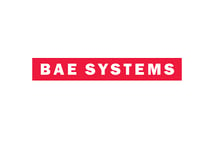Investing in the National Security of Different Countries on EasyEquities
In 2024, global defense spending rose to $2.46 trillion, driven by heightened threat perceptions. Europe experienced an 11.7% real increase in defense budgets, reaching $457 billion, marking a decade of growth. Germany led with a 23.2% rise, though its future budget remains uncertain due to political instability. Poland also climbed in the rankings, becoming the 15th-largest defense spender.
Additionally, NATO Secretary General announced that European countries would increase defense spending following President Donald Trump's request to raise it to 5% of GDP. Despite a $700 billion increase since Trump took office, the Secretary General stressed that further investment is needed to enhance security and balance contributions with the U.S., emphasizing Europe's need to strengthen its own defense capabilities.
This rising defense expenditure has benefited companies like BAE Systems, whose revenue surged 14% to £28.33 billion in 2024. Strong demand for fighter jets, submarines, and frigates fueled growth, with EBIT reaching £3.01 billion and earnings per share rising to £68.5. New orders totaled £33.7 billion, pushing the backlog to £77.8 billion. CEO Charles Woodburn attributed this momentum to increased defense spending, and the company expects sales to grow 9% and profits 8% this year.
"Based on the exceptional visibility of our record order backlog and the sustainability of our value-compounding business model, we remain confident in the positive momentum of our business going forward," said, CEO of BAE Systems.
Additionally, BAE Systems is benefiting from increased defense budgets in multiple countries. The company secured £33.7 billion in orders and advanced key programs, including:
- A joint venture with Leonardo SpA and JAIEC for the Global Combat Air Programme (GCAP), pending approval.
- Selection under AUKUS to deliver Australia’s nuclear submarines in partnership with ASC Pty Ltd.
- A £4.6 billion contract for three Hunter-class frigates in Australia, with construction underway.
- Additional combat vehicle orders for Hägglunds, totaling $2.5 billion (£2.0 billion).
- Multiple satellite launches for the U.S. Space Force and NASA, including the delivery of a key instrument for NASA’s Roman Space Telescope.
Guidance for 2025
| Measure | Year ended 31 December 2025 Guidance |
| Sales | Increase by 7% to 9% from £28,335m (£28bn) |
| Underlying EBIT | Increase by 8% to 10% from £3,015m (£3bn) |
| Underlying EPS | Increase by 8% to 10% from 68.5 pence |
| Free cash flow target | greater than £1.1bn |
Leidos Holdings, Inc. is another company benefiting from increased defense spending, securing major contracts across key military and security programs. Q4 bookings reached $7.6 billion, totaling $23.4 billion for FY 2024, with book-to-bill ratios of 1.7 and 1.4. The year-end backlog stood at $43.6 billion, including $8.4 billion in funded contracts.
"Our outlook for the future remains decidedly positive, as we have a clearly defined strategy and a technology-enabled team poised to navigate this dynamic environment from a position of strength," said the CEO of Leidos.
Leidos also secured major defense and security contracts, including:
- IFPC Increment 2 Program: A five-year, $4.1 billion IDIQ contract from the U.S. Army for missile defense, including an initial order of 18 launchers for Guam.
- TSA Logistics Support: An eight-year, $2.6 billion contract to maintain 12,000 security units across 430+ U.S. airports, leveraging AI for predictive maintenance.
- F-16 Foreign Military Sales: A 10-year, $987 million contract to provide engineering and sustainment for global F-16 fleets, supporting 2,200 active aircraft.
Guidance for 2025
| Measure | FY25 Guidance |
| Revenues | $16.9bn - $17.3bn |
| Adjusted EBITDA Margin | Mid-High 12% |
| Non-GAAP Diluted EPS | $10.35 - $10.75 |
| Cash Flows Provided by Operating Activities | Approximately $1.45bn |
Defense can be both good and bad. Countries maintain defense and military capabilities to protect their sovereignty, ensure national security, deter external threats, and uphold geopolitical stability. Military forces also support disaster response, peacekeeping, and international commitments. Strong defense systems help deter aggression, safeguard economic interests, and maintain internal stability.
Conclusion
The growth of defense spending could present significant opportunities for investors, particularly in defense stocks, aerospace, cybersecurity, and military technology sectors. Companies like BAE Systems and Leidos Holdings could benefit from increased government contracts, higher order backlogs, and strong revenue growth. This sustained demand for advanced weaponry, defense systems, and security solutions can lead to steady dividend payouts and capital appreciation, making defense stocks an attractive option for long-term investors.
For ethical investors who consider investing in defense stocks taboo, socially responsible investing (SRI) and Environmental, Social, and Governance (ESG) principled products, such as Shariah-compliant portfolios, offer alternatives. These portfolios generally exclude defense companies that derive the majority of their revenue from non-permissible activities, such as arms production or weapons sales.
Any opinions, news, research, reports, analyses, prices, or other information contained within this research is provided by an employee of EasyEquities an authorised FSP (FSP no 22588) as general market commentary and does not constitute investment advice for the purposes of the Financial Advisory and Intermediary Services Act, 2002. First World Trader (Pty) Ltd t/a EasyEquities (“EasyEquities”) does not warrant the correctness, accuracy, timeliness, reliability or completeness of any information (i) contained within this research and (ii) received from third party data providers. You must rely solely upon your own judgment in all aspects of your investment and/or trading decisions and all investments and/or trades are made at your own risk. EasyEquities (including any of their employees) will not accept any liability for any direct or indirect loss or damage, including without limitation, any loss of profit, which may arise directly or indirectly from use of or reliance on the market commentary. The content contained within is subject to change at any time without notice.
Any opinions, news, research, reports, analyses, prices, or other information contained within this research is provided by an employee of EasyEquities an authorised FSP (FSP no 22588) as general market commentary and does not constitute investment advice for the purposes of the Financial Advisory and Intermediary Services Act, 2002. First World Trader (Pty) Ltd t/a EasyEquities (“EasyEquities”) does not warrant the correctness, accuracy, timeliness, reliability or completeness of any information (i) contained within this research and (ii) received from third party data providers. You must rely solely upon your own judgment in all aspects of your investment and/or trading decisions and all investments and/or trades are made at your own risk. EasyEquities (including any of their employees) will not accept any liability for any direct or indirect loss or damage, including without limitation, any loss of profit, which may arise directly or indirectly from use of or reliance on the market commentary. The content contained within is subject to change at any time without notice.
Subscribe to our Blog
Search all articles
Posts by topic
- Market News & Events
- Easy Community
- Education
- Dividends Update
- Exchange Traded Funds (ETFs)
- Managed Bundles
- Property Investing
- USD Wallet
- Retirement Annuity (RA)
- Cryptocurrency
- Tax Free Savings Account (TFSA)
- International Investing
- Unit Trusts
- New to Investing
- Artificial Intelligence
- EasyProtect
- Shares
- EasyCredit
- Government Bonds
- New Listings
Let Us Help You, Help Yourself
From how-to’s to whos-whos you’ll find a bunch of interesting and helpful stuff in our collection of videos. Our knowledge base is jam packed with answers to all the questions you can think of.



.png?width=1200&length=1200&name=image%20(99).png)
.png?width=1200&length=1200&name=image%20(100).png)

